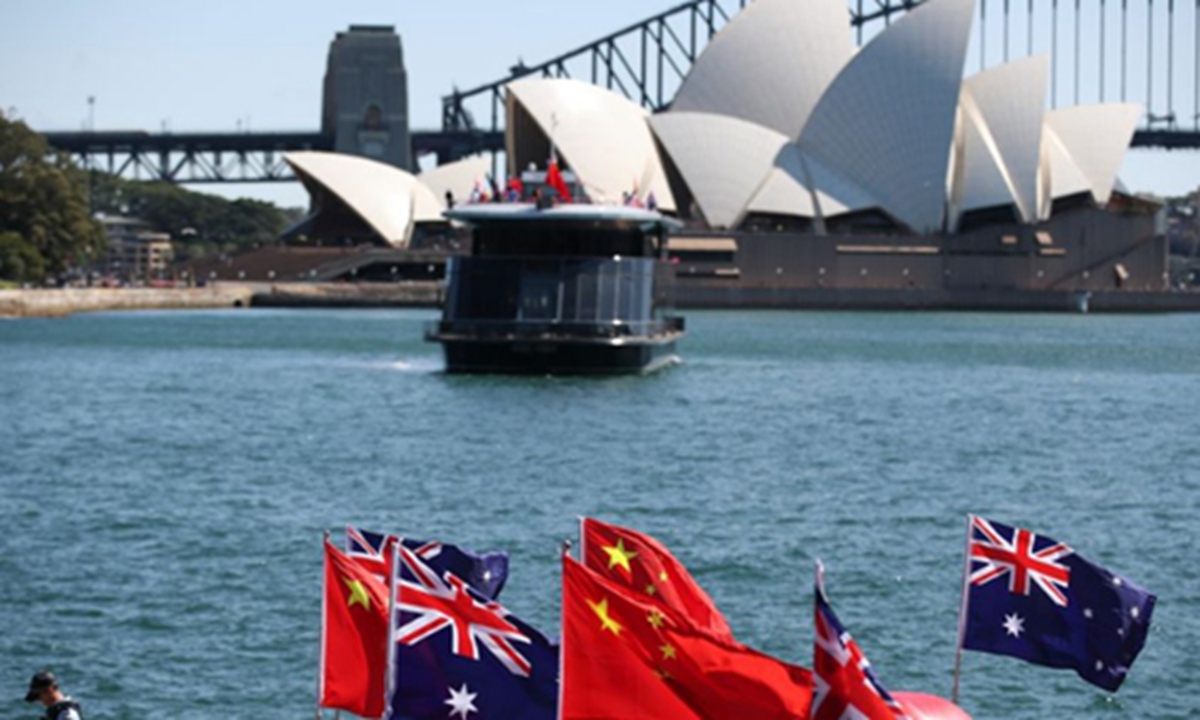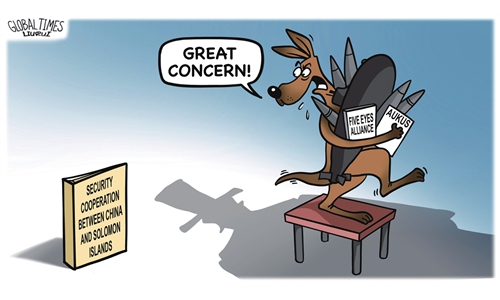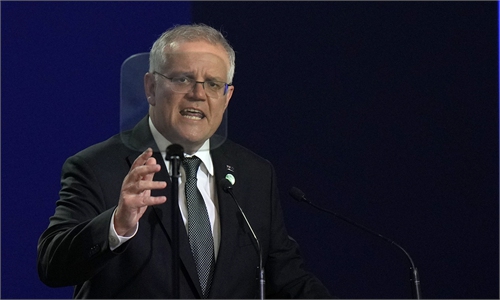
Photo: Xinhua
Australian Prime Minister Scott Morrison announced recently that Australia will hold a federal election on May 21, which, according to the US-based Associated Press, is expected to be fought on issues including Chinese "economic coercion," climate change and the COVID-19 pandemic.Given the mounting challenges the Australian economy is facing, it should be domestic policies that can actually help the Australian people that should dominate the election, instead of words that could lead to more tension with Australia's biggest trading partner - and in turn more trouble for the Australian economy.
Then again, Morrison and his government have nothing to show for, in terms of addressing crucial issues directly related to the livelihood of the Australian people. That's why Morrison and his officials have kept hyping issues like China's "economic coercion" or "threat" to its national security, clearly seeking to stoke more anti-China hostility in Australia and then shamelessly ride that hostility to power again.
Amid the Russia-Ukraine conflict in Europe, there is a general rise in nationalism in the West, with the growing voices from the right and the far right. In order to cater to the toxic political atmosphere during the election, it is likely that candidates will play the anti-China card in attempt to win more votes.
In fact, this trend has been very clear in Australia ahead of the election. With the election approaching rapidly, politicians in Canberra are keen to spread more political virus to blur their failure and ineptness in handling critical domestic and foreign policies.
Needless to say, such an attempt for political expediency will only result in more tension for China-Australia ties and more trouble for Australia's economy.
If Australian politicians continue to instigate hostility toward China, bilateral economic and trade cooperation is likely to face more headwinds that will exacerbate troubling trends in bilateral economic and trade cooperation. That is a lose-lose for businesses and consumers of both sides.
After suffering major shocks from the COVID-19 pandemic, floods, deteriorating China-Australia relations and other international changes over the past years, the Australian economy is currently struggling with a surging cost of living, with inflation expected to hit 4.5 percent in the second quarter of this year.
For many who are concerned about the China-Australia trade relationship, this should be an opportunity for the Australian government to reconsider its unreasonably hostile attitude toward China. No matter how Canberra brags about its efforts to bolster the Australian economy, its loss of market share in the Chinese market is virtually impossible to make up for in any other markets.
For instance, despite some trade barriers remaining in place, Australia recently signed an interim free trade agreement with India, after stalemate in trade negotiations with India for a decade due to certain longstanding obstacles. The timing of the deal was apparently carefully calculated, as the trade deal has been touted as a tangible achievement by the Morrison government when it comes to diversifying export market and reducing Australia's dependence on China.
Nevertheless, it should be pointed out that given the fact that Australia-India trade currently accounts for about a tenth of the trade value between China and Australia, any claim about reducing so-called dependence on China is meaningless and unconvincing at all.
Elections in Australia are a matter of Australia's internal affairs. However, given the dangerous attempt of some Australian politicians in stoking anti-China hostility, it is hoped that the Australian side should take active actions to ease tension with its biggest trade partner and pursue win-win cooperation, not the opposite.



